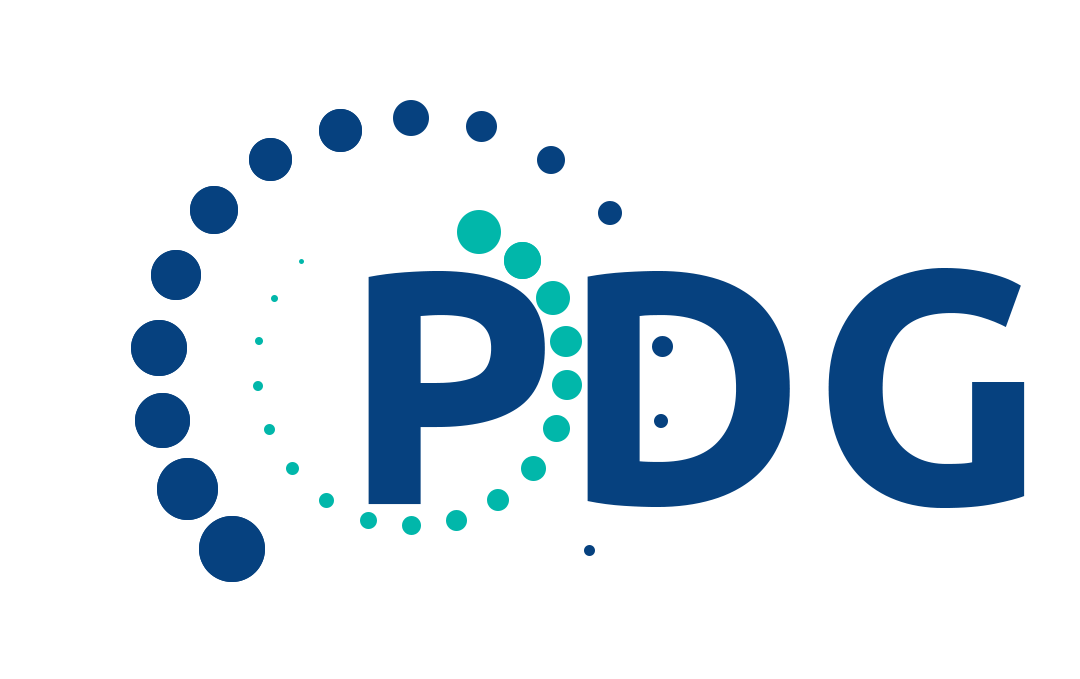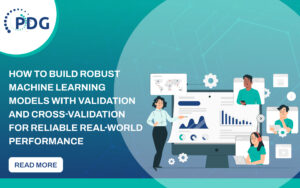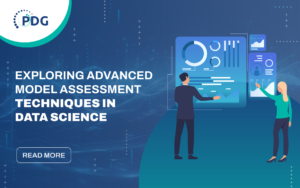New Strategies For Using Big Data Analytics For Healthcare Advancements
Big data carries a weighted name. Many people associate data collection with some invasive practices. In the healthcare world, patient privacy is paramount. However, big data also holds some promising possibilities for advancements in healthcare. Analyzing data from patients and providers can help to improve medical technology and treatments which ultimately leads to better healthcare for patients.
In a world of constant change, technology requires a responsible and trustworthy hand. Using big data analytics for healthcare requires some strategic planning and implementation. Let’s look into the benefits and risks of big data analytics and healthcare and how to improve the relationship between the two.
Benefits Of Data Analytics For Healthcare
Medical studies work to achieve an unbiased account of treatment, symptoms, and the effects of medication. With big data, the information is readily available. Processing this data into usable information takes some tact and strategy but there is potential for massive benefits for the healthcare world. The information holds promise to continue to improve patient care in the medical world for numerous conditions.
Population Health
Population health refers to the approach to the healthcare of an entire human population. Data collection shows the overall health of a population based on location, demographic, and more. While it is important to note the issue of patient privacy, the potential for using data analytics to achieve an unbiased scope on the overall health of a population is unmatched.
Medical Imaging
Medical imaging in itself is the analysis of images of the body and its organs. Big data holds the potential for sharing more diverse and expansive medical imaging to help advancements in this area of healthcare. Improvements to medical imaging will in turn benefit the processes of clinical analysis and medical intervention.
Chronic Disease Management
Chronic disease management is a crucial aspect of healthcare for patients suffering from long-term symptoms from various conditions. The overall quality of life for these patients depends on advancements in this sector of healthcare. Data analytics helps to determine successful and unsuccessful treatment options for patients with various chronic conditions.
Precision Medicine
With advancements in medical technology and gene profiling, precision medicine has made leaps and bounds in recent decades. Precision medicine seeks to create tailored treatment programs, medical decisions, products, and practices for individuals and sub-groups. The advancements of precision medicine are seeking to replace the one-fits-all drug model of previous eras of healthcare.
Why Big Data Is Problematic
Despite the potential for beneficial advancements in many segments of healthcare, big data is undeniably problematic. There are aspects of how data is both collected and used that trouble many. Balancing the risks and benefits is a delicate dance. Finding new strategies for both the collection, processing, and implementation of data from individuals is paramount in responsibly incorporating the information in healthcare practices.
Privacy Concerns
Patient confidentiality is a basic right for anyone receiving medical care. Using data collected from patients requires trust from providers. Finding ways around this hurdle is paramount in using data analytics for healthcare advancements.
Data Access and Collection
Many individuals, patients, and providers express concerns about who has access to data and how it is collected. Transparency in this realm is incredibly important to building trust between patients and providers. This is another hurdle that must be overcome to incorporate information drawn from data analytics in healthcare advancements.
Strategies For Implementing Big Data In Healthcare
Overcoming hurdles associated with big data is necessary for healthcare to take advantage of the promising benefits. Healthcare researchers and provider organizations are developing and implementing strategies to improve how data analytics are collected and used in healthcare. Many of these strategies rely on building trustworthy models as well as improving the reliability of how data is analyzed.
Using Data For Training Purposes
Data analytic tools used in healthcare rely heavily on the quality of the information used to train them. These data analytic tools create algorithms based on the information they receive as training data. Algorithms based on low-quality data are significantly more likely to yield poor results. These poor results in turn lead to poor medical care, programs, and protocol.
Improving the data used in these analytic tools will help to create more reliable and accurate algorithms. Without advancements in data analytics, obtaining quality material for training is both times extensive and expensive for healthcare organizations. Building effective models rely heavily on quality data and without it, these tools will be unable to deliver satisfactory care to patients.
Researchers acknowledge this as a major hurdle that needs to be jumped to bring the promise of big data in healthcare to fruition. Researchers from MIT’s CSAIL (Computer Science and Artificial Intelligence Library) made headway on this issue in 2019. The team developed an automated system for gathering more information than ever from medical images. This system incorporates massive datasets of training examples to train machine learning models.
These analytic tools will help to cut down on time and get to conclusions faster. Imagine individual researchers reading 20,000 pages of studies and synthesizing the information into usable data. This is laborious and time-consuming. With machine learning models, this information can be synthesized and processed quickly and effectively. With proper fine-tuning, these machines can quickly and accurately produce information to provide top-quality care for patients suffering from diseases and other health conditions.
Making Patient Privacy A Priority In Developing Analytic Tools
To accurately synthesize information with analytic tools, the data must come from patients. Unfortunately, there is a lot of mistrust around data collection and access. Understandably, patients and the general population are concerned about their personal and private medical information being shared.
For the proper training in analytic technology, researchers need access to the large and diverse medical data available. There are legal and privacy concerns about the security of an individual’s private data that must be addressed to responsibly gather data for analytic purposes. It is a major concern of both researchers, providers, and patients. In the current development of analytic tools, these concerns are being taken very seriously.
The University of Iowa in partnership with the National Science Foundation has set out to seek a solution to this problem. The team of researchers is working on a machine learning platform for analytic training using data from all over the world. The researchers are working to create a decentralized system for organizations to share data models rather than individual patient data. This means the issue of privacy and patient security is not involved in the development of machine learning models.
Previously, training models relied on access to patient data specifically rather than data models which are less invasive and provide less risk to patient privacy and confidentiality. By using a decentralized system, this new system developed by the University of Iowa, called ImagiQ also helps to take the work off of individual hospitals that in previous models had to maintain databases on their own.
Federated Learning For Preserving Patient Privacy
Federated learning supports the efforts of other upcoming analytic tools and technology in preserving patient privacy. Federated learning is an emerging approach to data analytics where clinicians train algorithms across decentralized servers and devices. This approach allows for the devices and servers to hold samples without sharing them. This helps to protect individual patient data while still reaping the benefits of the information held in the data.
Improving Algorithms By Removing Bias
Incorporating data systems in healthcare requires a lack of bias in the information provided to algorithms. If data sets hold any sort of bias, it will exaggerate inequities in certain population groups when it comes to healthcare. Eliminating bias in the data sets and models used to train algorithms is paramount in creating reliable and trustworthy technology.
There are notable inequities in healthcare and these new algorithms can either remove or exaggerate these inequities. Algorithms are tricky and complicated when it comes to bias. Developing technology with unbiased information is of utmost importance for the future of healthcare.
Properly developing algorithms is the difference between using data collection for good or bad intentions. Big data analytics are used in a wide range of industries. Some industries use data to exploit consumers. When it comes to healthcare, the algorithms must be as unbiased as possible to ensure patient care is a top priority.
Creating Reliable and Trustworthy Analytic Tools
Building trust with patients is one part of the coin, analytic tools must build a reputation of reliability and trustworthiness for providers as well. Providers need confidence in the data and models produced by the algorithms trained with big data analytics. Artificial intelligence tools show a lot of promise in building trust with providers.
AI tools help to manage large workloads and even augment clinical decision-making when it comes to patient care. Creating AI tools where clinicians and providers can tailor and refine the technology will help to build confidence in clinicians working with the technology. Getting clinicians on board with these new analytic technologies and algorithms will help build a reputation of trustworthiness around all these new technologies and tools in healthcare.
Having clinicians working with new technologies in healthcare helps to make them even more efficient and accurate. All aspects of the healthcare industry are integral in creating new systems for data analysis for patient care. The expertise of practicing clinicians will reinforce the data and information in these systems and make them more reliable, accountable, and trustworthy for all parties involved.
Conclusion
Big data analytics has its hang-ups but the potential for vast improvements across nearly all sectors of healthcare is extremely promising. Developing analytic tools with reliability and trustworthiness in mind is paramount for the future of this technology for medical developments and advancements. There are hurdles to overcome and they are being addressed by organizations, researchers, and providers alike. As the technology continues to be refined and developed, the possibilities for improving healthcare for patients around the world are exponential.





